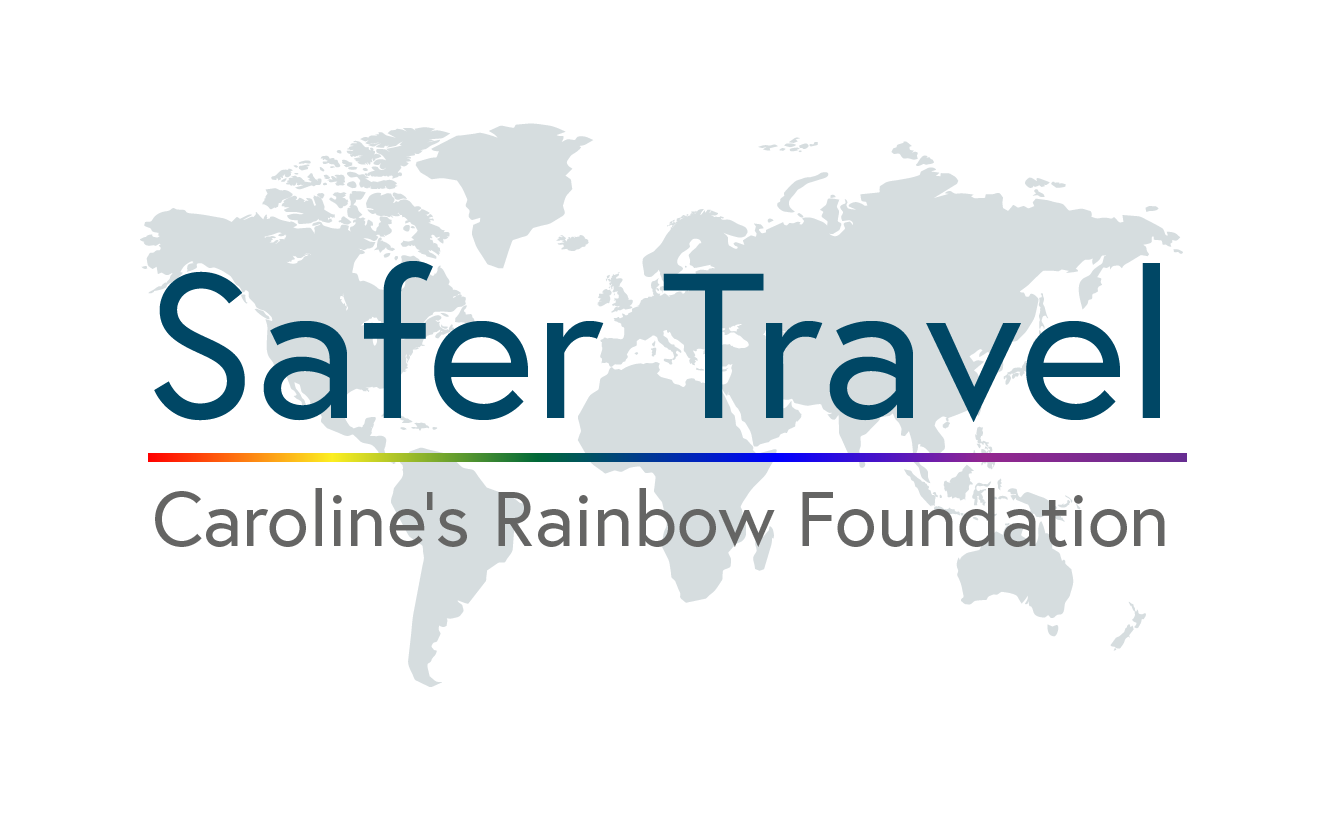Deaf Travellers
Showcasing deaf travel tips and information to help raise awareness of safety issues when aboard in the deaf community.
Project created by Sarah Carmichael and Megan Burrows.
Transport information and tips
Bus
Check a timetable so that you are aware of your journey time and know when your stop is near.
Write down your destination and ask the bus driver to alert you when you have reached it. Sit near the front of the bus so they can do so.
Most travel information offices have an induction loop system in operation; switch your hearing aid to ‘T’ to amplify the sound.
You may be entitled to a bus pass under the Concessionary Fare Scheme if you have a sensory loss i.e. are profoundly or severely deaf, without speech, registered blind or partially sighted. You can get your bus pass or rail card stamped by our local social services office or doctor. IMPORTANT NOTE: Your doctor may charge you for this service.
For more information, search online for ‘concessionary fare scheme’ in your local area.
Rail
Keep an eye on the screens in the train station in case there is a platform change.
Book train tickets online to avoid communication difficulties in the train station.
It is worth noting the name of the station before the one that you are travelling to so that you can prepare to get off the train
When the doors are about to close, there will be a visual reminder for passengers that cannot hear the safety announcement. This will be a flashing door closing light next to the door or something similar.
Inform people around you of your hearing problem as it is an invisible disability and people might overlook it.
If you see lots of people on the platform move away, ask someone what’s going on. If in doubt, check with station staff. There could be a reason for everyone moving in the same direction. It may be an emergency.
You may be entitled to the Disabled Person’s Rail Card. The application form requires a Social Services official stamp or you can take a copy of the front page of your NHS battery book /a copy of your dispensing prescription from a private hearing aid supplier. You can get an application from your local railway Station or download it.
Taxi
Download an app for your smartphone. You can use these to book a taxi and they will let you know when the taxi is close.
Write your destination and any additional information on paper to hand to the taxi driver.
It is a legal requirement that both taxis and private hire vehicles cannot refuse to carry assistance dogs and the dogs must be allowed to stay with their owners and be carried at no extra charge. Some drivers may have a notice of exemption due to medical condition or allergy. This must be displayed on the windscreen or dashboard of the vehicle and will have a large ED printed on it.
Air travel
People who are deaf or hard of hearing are not allowed to sit in the seats with extra leg room near the aeroplane exits due to legislation concerning emergency procedures.
There are seats reserved for passengers with disabilities close to the front of the plane which you can request in order to gain a better view of safety demonstrations.
Information videos shown on the plane should have subtitles
It may be helpful to alert the cabin crew to your hearing impairment to ensure that you are made aware of any important announcements during the flight e.g. emergencies and delays.
If you require assistance at the airport, it is advisable to inform your travel agent or airline company as soon as possible so that they may make the necessary staffing arrangements. Assistance can be arranged to help you at check-in, custom controls and baggage check.
You can request that a member of staff inform you personally as soon as information is announced regarding your flight.
The majority of public address systems at airports should include induction loop facilities, which will amplify the sound when you use the ‘T’ switch on your hearing aid.
If you plan to take your assistance dog with you on the flight, you must inform the airline in advance. The airline operator may request you to provide evidence that your dog has been trained by a recognised dog training organisation.
Before booking your flight, check the airline’s policy on carrying assistance dogs. There should be no charge for taking your assistance dog on a flight and your dog should be able to stay with you in the passenger cabin.
A car safety harness should be taken on the plane to enable your dog to be secured during take-off and landing and your dog should carry an identity tag. To prepare your dog under the Pet Travel Scheme, the dog must be micro-chipped, vaccinated against rabies and have a blood test. In addition your dog must be issued with a pet passport and have treatment for ticks and worms.
At the hotel, on arrival inform the receptionist that you’re deaf so that they can alert you in case of emergency. Some major hotels may have alerting devices which flash or vibrate strongly when the fire alarm goes off.
Communicating with a deaf person
How to get a deaf person’s attention:
- Wave gently in front of their face
- Gently tap their shoulder
- At a distance, you can use vibration – for example, stamp your foot or flick a light switch on and off
- You can create a tap chain asking people to relay taps if you are far away from the subject
Considerations while you are conversing:
- Speak clearly and do not rush your words to allow for lip reading
- Always look at the person to whom you are speaking
- Speak at normal volume or slightly louder
- Do not talk over someone else
- If they do not hear you the first time then repeat. If they still do not understand, try re-phrasing. This will change the lip patterns
- Write/type things down if necessary
- Don’t mumble or exaggerate words – this will distort lip patterns
- Don’t cover your mouth with hands, scarves etc
- Maintain eye contact
- Do not eat or chew anything while signing
- Ensure you are in a well-lit area with little or no background noise
- Use lots of facial expressions and gestures
- Travel Information and living with hearing loss by Karen Putz – Hearing Like Me – Travelling with hearing loss.
Companies specialising in deaf travel
UK
www.deafworldtraveluk.co.uk Award-winning group travel company with certified sign language interpreters.
www.tourismforall.org.uk Accessible travel for all, UK-based company.
www.openbritain.net UK destinations with accessible facilities.
www.deafcitytours.com Deaf tours and events in the UK and abroad.
www.deaftravel.co.uk Deaf travel directory
www.deafcruiseagent.com Deaf travel cruises
www.mydeafcruise.com My Deaf Cruise
International
www.deafglobetrotters.com Group vacations with signed tours based in Texas, USA.
www.egyptdeaftravel.com Offers a wide range of speciality travel programmes. Guides use American Sign Language. Operated by Palma Tours Egypt.
www.passagesdeaftravel.com Group vacations and cruises based in Virginia, USA.
www.deafholidaysgreece.com Organised holidays and excursions in Crete.
www.specialsafaris.com/deaf-holidays-travel Vacations, tours and safaris for the deaf in Kenya, Tanzania and Uganda.
www.grancanariadeaf.com Bungalow complex in the south of the Gran Canaria with personal assistants available for airport collection, arranging tours etc.
www.nican.com.au/service/australian-deaf-tours Personal tour guide service in Australia. Interpreters available for 4 types of sign language; AUSLAN, ASL, BSL and ISL.
www.deafargentinatravel.com Customised tours in Argentina with interpreter of several international sign languages.
www.cambodiadeaftours.com Deaf and deaf-blind tours around Cambodia for individual or group travel.




